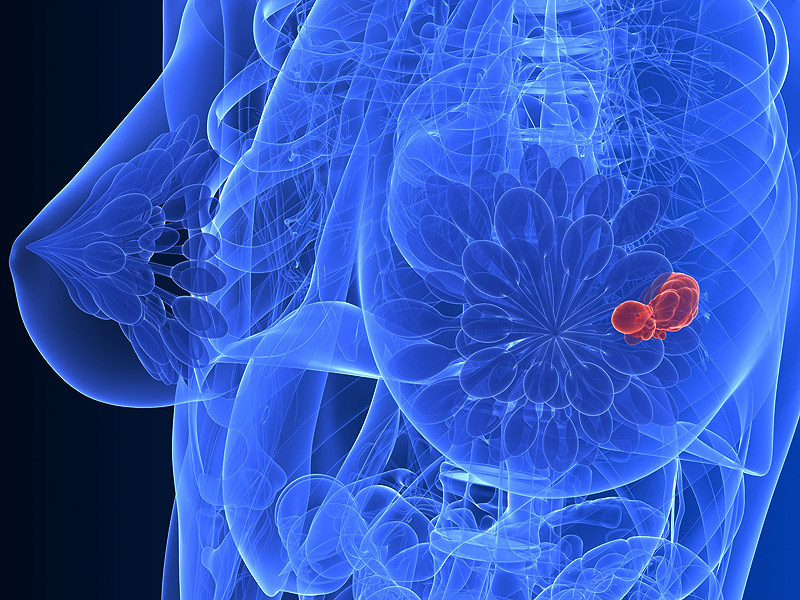Women Nearly 3 Times Likely To Get Breast Cancer With Common Hormone Replacement Therapies
 By Karen Foster
By Karen Foster
Scientists at the Institute of Cancer Research in London say the risks of taking the pills have been underestimated for years – and are actually 60 percent higher than thought.
The findings, based on a study of 39,000 British women tracked as they went through the menopause, will re-ignite a 20-year-old debate about the benefits and risks of taking HRT.
The research found women who took the combined form of HRT – which contains both oestrogen and progestogen – were 2.7 times more likely to develop breast cancer over five years than those who did not take the treatment.
Previously, scientists thought the pills or gels only increased the risk by 1.7 times.
Widget not in any sidebars
In 2002, a large trial showed conclusively that HRT did not reduce cardiovascular disease, and increased the risk of breast cancer. Yet ghostwritten articles published after this date downplayed the 2002 study, suggesting that there was no consensus on Prempro’s breast cancer risk.
The criticism of ghostwriting is one of several issues that have put scientific journals on the defensive. Even journal editors acknowledge they have sometimes done a poor job of detecting when articles cherry-pick favorable data to promote a particular drug or treatment. Some health insurers have stopped taking what they read in the journals on faith and are employing analysts to scrutinize articles for negative data that are buried.
Menopause, which commonly strikes women in their late 40s and early 50s, can cause depression, hot flushes, headaches and night sweats. Long term, it can also cause bone disease and memory loss.
Many women assume that “natural” hormones would be better or safer — but the term “natural” is open to interpretation.
HRT tackles symptoms by replacing the female sex hormones – oestrogen and progestogen – as the body stops producing them.
It raises the risk of cancer, meaning a number will develop the disease who would otherwise not have.
 The new research, published in the British Journal of Cancer, suggests that number is higher than previously thought.
The new research, published in the British Journal of Cancer, suggests that number is higher than previously thought.
Normally, of every 1,000 women in their 50s, 14 would be expected to develop breast cancer in a five-year period.
Scientists previously thought if the same number of women took the combined form of HRT, 22 would get breast cancer over the same time period – eight more than if they had not taken the treatment.
According to the new estimates, 34 women in 1,000 would get breast cancer on combined HRT, an extra 20 than among the group who does not take the drugs.
Crucially, the researchers found the cancer risk gets higher the longer someone takes the therapy.
Women who take combined HRT treatments for 15 years or more are 3.3 times as likely to get breast cancer as those who never take the pills.
Experts today warned women who do take HRT should take the lowest dose possible, and stop taking them as soon as they are able to.
Some women are known to take HRT for many years, fearful the difficult symptoms of the menopause might return if they stop taking the pills.
The researchers found cancer risk went back to normal as soon as women stopped taking HRT.
They also found no link between the oestrogen-only form of HRT and breast cancer risk.
Study leader Professor Anthony Swerdlow, of the the Institute of Cancer Research said: ‘Our research shows some previous studies are likely to have underestimated the risk of breast cancer with combined oestrogen-progestogen HRT.
‘We found current use of combined HRT increases the risk of breast cancer by up to threefold, depending on how long HRT has been used.
‘Our findings provide further information to allow women to make informed decisions about the potential risks and benefits of HRT use.’
The findings were drawn from the Breast Cancer Now Generations Study a major study following more than 100,000 women for 40 years to investigate the causes of breast cancer.
The researchers said previous studies underestimated the risk of breast cancer because they did not use updated information on women’s use of HRT over time and took into account when they actually began the menopause.
Baroness Delyth Morgan, chief executive at Breast Cancer Now, which funded the study, said: ‘Whether to use HRT is an entirely personal choice, which is why it’s so important that women fully understand the risks and benefits and discuss them with their GP.
‘On balance, some women will feel HRT to be a necessity.
‘But in order to minimise the risk of breast cancer during treatment, it is recommended that the lowest effective dose is used for the shortest possible time.
 ‘The good news is the increased risk of breast cancer begins to fall once you stop using HRT.’
‘The good news is the increased risk of breast cancer begins to fall once you stop using HRT.’
Dr Heather Currie, chair of the British Menopause Society, said: ‘HRT is an effective treatment for menopausal symptoms, particularly with the management of hot flushes.
‘Further clarity around the effects of different types and routes of progestogens in combined HRT is needed.
‘Women need clear, evidence-based information to break through the conflicts of opinion and confusion about the menopause.
‘For many women, any change in breast cancer risk is outweighed by the benefit on their quality of life, bearing in mind there are many other factors that increase the risk of breast cancer, for example lifestyle factors.’
‘Weighing up the numerous risks and benefits of taking HRT can be tough.’
Also Read: The Myth of Safe Bio-Identical Hormones and 9 Reasons To Avoid This Toxic Therapy
Karen Foster writes for PreventDisease.com, where this article first appeared.



